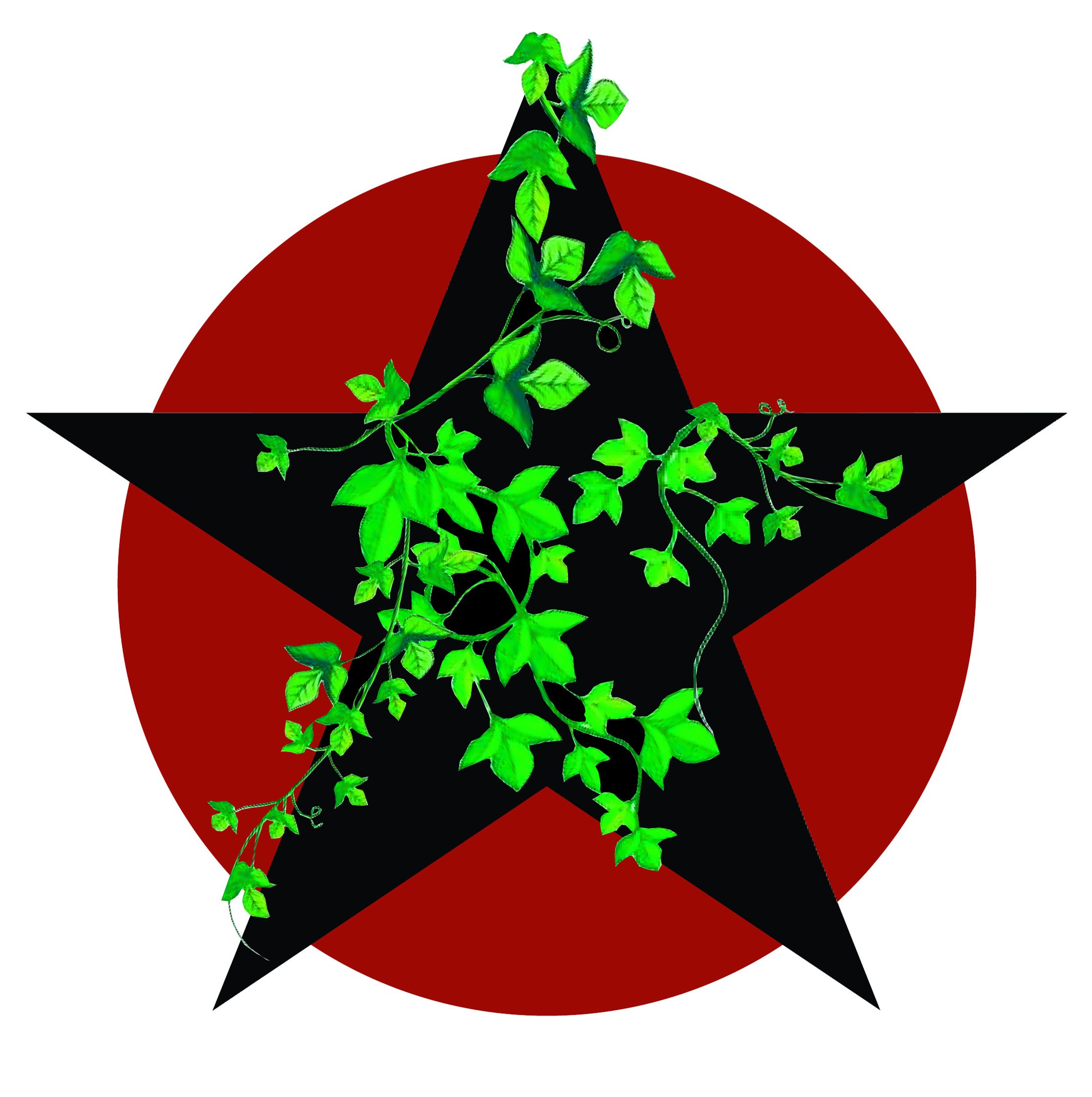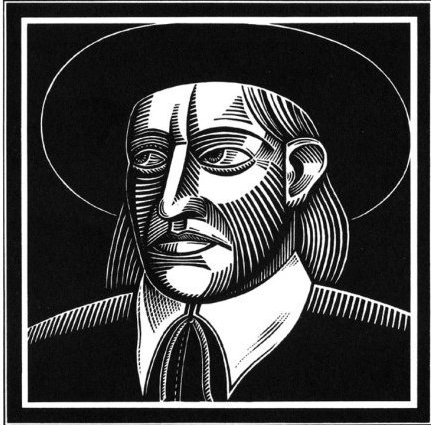
“True freedom lies in the free enjoyment of the earth”
Gerrard Winstanley (1606-1676) was a revolutionary writer and activist who has inspired generations of socialists, communists and anarchists.
Writing in 1906, Lewis H. Berens declared that “Winstanley was, in truth, one of the most courageous, far-seeing and philosophic preachers of social righteousness that England has given to the world”. (1)
He was the best-known spokesman of the Diggers, or True Levellers, a group of men and women who occupied and cultivated common land at St George’s Hill in Surrey in 1649 and called for an egalitarian society free of the chains of property, wealth and authority.
Along with like-minded people elsewhere in the country, Winstanley and his comrades wanted to push the English Revolution to a second stage.
After the execution of Charles I, they did not want to see power simply transferred to a new parliamentary authority promoting the interests of the mercantile classes.

Unfortunately, their revolt was crushed and, after this key moment in its history, the country took the disastrous path of rapacious capitalism, industrialism and imperialism, destroying the freedom and social stability not just of its own population but of peoples all across the world.
Winstanley’s writings are strongly marked by a heretic and pantheistic form of Christianity, inherited from the revolutionary spirituality of the medieval Free Spirit movement and the early Protestant rebellions against the Roman Catholic Church.
Rather than being an unfortunate anachronism than can safely be ignored by 21st century radicals, Winstanley’s spirituality is the foundation of his holistic anarcho-communism.
As Kenneth Rexroth wrote: “It was not his economics that was most important to Winstanley. What he sought was a spiritual condition in mankind which would be in harmony with the working of Reason in nature — the return of man, who had fallen into covetousness, to the universal harmony.
“Winstanley’s communism was not an economic doctrine, but mutual aid followed from his organic philosophy as a logical consequence”. (2)
 Winstanley rejected the whole basis of authority in England as being an imposture, part of the “Norman Yoke” that had been inflicted on the people in 1066.
Winstanley rejected the whole basis of authority in England as being an imposture, part of the “Norman Yoke” that had been inflicted on the people in 1066.
Central to this imposture, which had robbed ordinary folk of their god-given natural freedom, was the idea that land could be “owned” by certain individuals or families. Instead, he said, the earth should become “a common treasury for all”. (3)
Winstanley declared in The Law of Freedom: “The poorest man hath as true a title and just right to the land as the richest man. True freedom lies in the free enjoyment of the earth”. (4)
He told the landed class, in one of his characteristic broadsides, that the power of “enclosing land and owning property” had been created by the violence of their ancestors – “which first did murder their fellow creatures, men, and after plunder or steal away their land, and left this land successively to you, their children”. (5)
So although the rich of his day might not personally have had to kill or steal to attain their inherited wealth and power, they would have to answer for their ancestors’ crimes “till your bloody and grieving power be rooted out of the land”. (6)
The law was also frequently identified by Winstanley and his comrades as a central part of the violence inflicted on the common people by the wealthy elite.
He wrote in A New Year’s Gift for the Parliament and Army in 1650: “England is a prison; the varieties of subtleties in the Laws preserved by the Sword are the bolts, bars and doors of the prison; the Lawyers are the Jailers; and Poor Men are the prisoners”. (7)
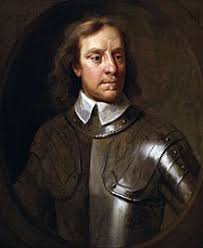
He had no illusions about the legitimacy of the power which dressed itself up either as The Crown or, under William Cromwell, The Commonwealth: “It was clearer to Winstanley than to most radicals that the state and its legal institutions existed in order to hold the lower classes in place,” remarks Christopher Hill. (8)
It was a measure of Winstanley’s radicalism that he understood that royal power, church power, legal power and commercial power were all linked and could all be brought tumbling down by a real people’s revolution: “If one truly fall, all must fall”. (9)
Although the revolutionary idealism expressed by Winstanley and his fellow Diggers was clearly forward-looking, there was another aspect to their vision which looked back to the past.
In many ways, they were rebelling against England’s transition from traditional co-operative community (Gemeinschaft in Ferdinand Tönnies’ terms) to a modern, individualistic, commercial society (Gesellschaft).
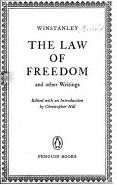 In The Law of Freedom, Winstanley repeatedly condemned “buying and selling” in the same moral tone in which Leo Tolstoy was to condemn artificial money-based society, or in which René Guénon was to condemn the modern “Reign of Quantity”.
In The Law of Freedom, Winstanley repeatedly condemned “buying and selling” in the same moral tone in which Leo Tolstoy was to condemn artificial money-based society, or in which René Guénon was to condemn the modern “Reign of Quantity”.
Winstanley regarded the society he knew as a perversion of the natural, ethical, egalitarian way of life which should have been the birthright of every man and woman.
This perspective was rooted in Winstanley’s heretical brand of Protestant Christianity, which identified God not as a personal deity or supreme being, but as an all-pervasive guiding spirit which he often referred to as “Reason”.
In this, he was close to the ideas of the 16th century natural philosopher Paracelsus. Writes Hill: “Winstanley was certainly acquainted with the Paracelsian tradition, from which he no doubt took the antithesis of light/darkness which pervades his thought as it does that of Clarkson, Bauthumley and the Quakers, the Children of Light.
“Winstanley may also have learnt from this source that ‘to know the secrets of nature is to know the works of God’, the ‘secrets of nature’ being a familiar phrase in this tradition”. (10)
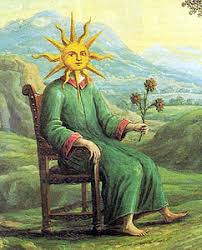
In The Law of Freedom, Winstanley described “the law of nature” which “does move both man and beast in their actions; or that causes grass, trees, corn and all plants to grow in their several reasons; and whatsoever any body does, he does it as he is moved by this inward law”. (11)
In The True Levellers Standard Advanced, he invoked the universal pantheistic view of nature as the mystical source of life when he referred to “thy mother, which is the earth, that brought us all forth; that as a true mother loves all her children”. (12)
For Winstanley, this age-old sense of natural belonging was the basis of his egalitarianism, the belief that all of us were equally-loved children of Mother Earth.
Video link: Winstanley (95 mins)

1. Lewis H. Berens, The Digger Movement in the Days of the Commonwealth, 1906. http://diggers.org/17480-Digger-Movement-BERENS.pdf
2. Kenneth Rexroth, Communalism: From Its Origins to the Twentieth Century, http://diggers.org/rexroth_diggers.htm.
3. Gerrard Winstanley, The True Levellers Standard Advanced (1649).
4. Gerrard Winstanley, The Law of Freedom (1652).
5. Gerrard Winstanley, A Declaration from the Poor Oppressed People of England (1649).
6. Ibid.
7. Gerrard Winstanley, A New Year’s Gift for the Parliament and Army (1650).
8. Christopher Hill, The World Turned Upside Down: Radical Ideas During the English Revolution (Harmondsworth: Penguin, 1975), p. 269.
9. Winstanley, A New Year’s Gift for the Parliament and Army.
10. Hill, p. 299.
11. Winstanley, The Law of Freedom.
12. Winstanley, The True Levellers Standard Advanced.
